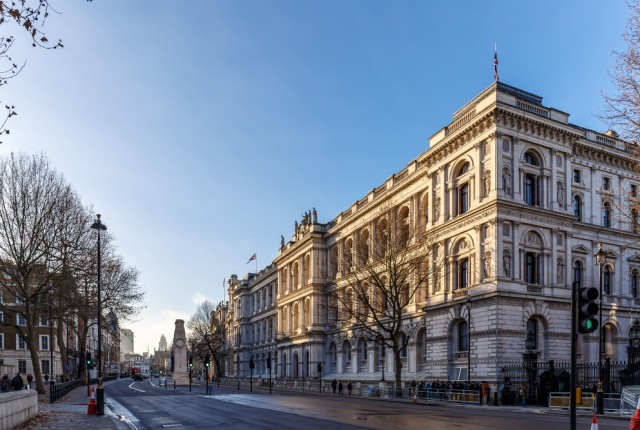

What are the UK interest rates and when will they fall?
The Bank of England has held interest rates at 5.25% for the fourth time in a row, but cuts are expected later in the year.
Interest rates move up and down in order to control UK inflation, which has come down sharply in recent months, easing cost-of-living pressures.
However, the UK economy has been stagnating amid increased borrowing costs and other pressures.
Interest rates set by the Bank of England affect mortgage, credit card and savings rates for millions of people across the UK.
What are interest rates and why do they change?
The Bank of England's base rate, currently 5.25%, is what it charges other lenders to borrow money.
The Bank's Monetary Policy Committee meets eight times a year to decide what the base rate should be.
It has a target to keep UK inflation at 2%. Inflation is the rate at which prices are rising across the economy as a whole.
When inflation is going up, the Bank may decide to raise rates to encourage people to spend less. The idea is that this helps bring inflation down by dampening demand for goods and services.
How do interest rates affect me?
Mortgages
Just under a third of households have a mortgage, according to the government's English Housing Survey.
When interest rates rise or fall, more than 1.4 million people on tracker and standard variable rate (SVR) deals usually see an immediate change in their monthly payments.
About three-quarters of mortgage customers have fixed-rate deals. Their monthly payments aren't immediately affected when the Bank changes rates, but future deals are.
Although mortgage rates have been lower recently, they are still much higher than they have been for much of the last decade.
This means homebuyers and those remortgaging will have to pay a lot more than if they had taken out the same mortgage a few years ago.
Savings
The Bank of England interest rate also affects how much savers can earn on their money.
Individual banks and building societies have been under pressure to pass on higher interest rates to customers.
There are some good deals on the market, so analysts say that customers should shop around, as money may be in accounts paying little or no interest.
The UK's financial watchdog warned banks will face "robust action" if they offer unjustifiably low savings rates to their customers.
When will UK interest rates go down?
The Bank rate is currently at its highest level for nearly 16 years.
However, the rate was higher than this for much of the 1980s and 1990s, and was running at 17% in November 1979.
After the latest meeting of policymakers, there were plenty of questions about why interest rates have not been cut, with the rate of inflation dropping sharply.
Inflation was running at 4% in December 2023, down from a peak of 11.1% in October 2022, although still twice the Bank's target.
The Bank has to balance the need to slow price rises against the risk of damaging the economy - which has shown little sign of growth - by keeping rates high.
If you need any more information, email enquiries@maffinancegroup.co.uk, call 0115 958 6872 or fill in an enquiry form below.
Have Any Questions?
Qualified Team Available
Related Articles

In the UK the financial year begins on the 6th of April of the current year and ends on the 5th of April of the following year.

The number of supermarkets offering EV charge points is set to increase by 59% in 2024.

Half of all local authorities now have an electric vehicle charging strategy in place.

The Chancellor has today unveiled the contents of this year's Budget in the House of Commons.

The Bank of England has held interest rates at 5.25% for the fourth time in a row, but cuts are expected later in the year.

New research from Aldermore’s Green SME Index has revealed that 489,000 UK small and medium-sized businesses (“SMEs”) qualify as 'green'.
